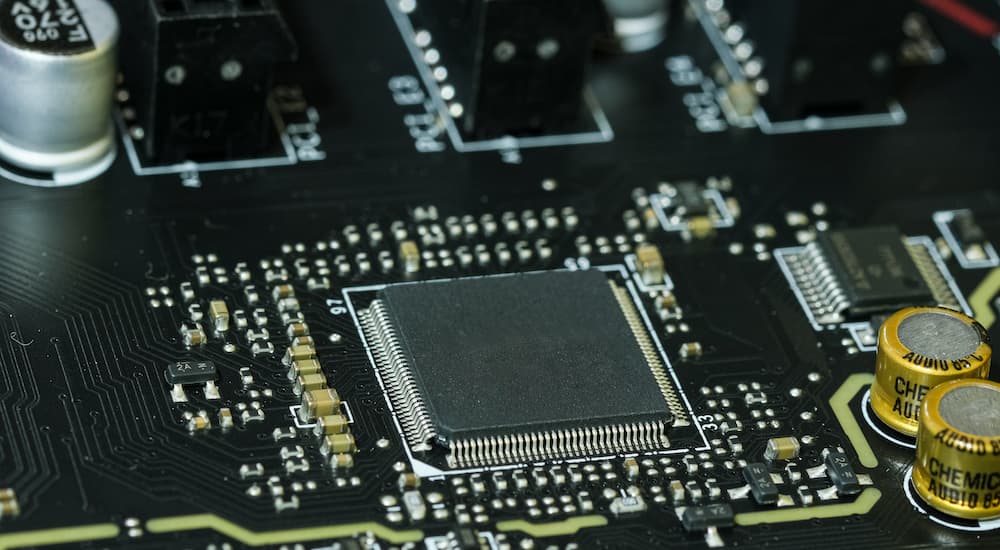Far be it from me to tell you how to live your life, but if I could offer one simple piece of advice, it would be this: don’t buy a car right now. That might not be the advice you’d expect from a site devoted to helping people figure out how to best shop for a vehicle and decide on which car is right for you. But I’d be doing you a disservice if I didn’t also provide you with advice while car-shopping based on the current market and what’s going on at the moment.
And the current market is saying one thing loud and clear: don’t buy a car right now! If you can help it, of course. I know there are plenty of people out there who need a vehicle right now, and you can’t wait. If you can wait, then this is absolutely not the time to buy a vehicle – if you can’t wait, however, then (and I know this will sound weird) you should buy a car right now, sooner rather than later. That may seem like I’m crazy and speaking in contradictions, but I promise it makes sense; just let me explain…
Brief Background – The Chip Shortage
How did we get to this point where used cars with more than 100,000 miles on them are going for $12,000 or more? Well, much like so many problems in our world right now, it started last year with the COVID-19 pandemic. I don’t have to tell you about how the pandemic impacted the world, but there was a particularly strange situation that occurred.
Amidst all of the various shutdowns last year, one industry that shut down was the manufacturing of silicon microchips. This created an inevitable shortage of chips since there was downtime in them being produced and no magic switch that could be flipped to make more of them. This was then combined with an increase in demand for these chips as new technology was being developed – including a couple of new video game consoles and new smartphones.
In addition to this, manufacturing for cars also slowed down and came to a halt, and car sales overall dropped significantly during the shutdown. As this happened, auto manufacturers reduced their order for these chips, figuring they wouldn’t need as many. That seems reasonable enough, right? Except, it turned out people wanted cars.

More Background – The Auto Market
As things began to reopen, something remarkable happened: the car market went nuts. In the latter half of last year, auto manufacturers ended up having record years with fantastic sales figures – car dealerships did really well, too, once they opened back up. A lot of people found themselves with extra money since they didn’t take vacations they had planned and saved for and received stimulus money from the government. This extra money turned into a huge sales year for the auto industry.
If you think that a huge boost in sales would mean the need for a lot of manufacturing of new vehicles, then you’re absolutely right. But like I said, the manufacturers had reduced their order for chips, chips that were in short supply as the manufacturing plants for them also experienced closures. By the time the auto industry got caught up and increased their orders for chips, they were well behind other companies, like Apple, Sony, and Samsung, which placed orders for significantly more chips than the auto industry.
So, that brings us to now. Auto manufacturers need cars to keep up with a surge in demand for vehicles, but they can’t make them because they don’t have the chips for them. Keep in mind, computers are involved in pretty much everything on vehicles these days, and you can’t make computer systems without these chips. In other words: there’s a huge demand for vehicles, and the manufacturers are cutting production in half, waiting on their microchips.
What’s this Mean? Prices Have Skyrocketed!
Now that we’re all caught up, let’s talk about what this really means for you. Simply put: prices for new vehicles have exploded. As of May, the average cost for a new vehicle in the US was at an all-time high. GM stated their average price per vehicle in a transaction increased by an average of $3,500 in the first quarter of this year. Ford has said their average transaction price for a vehicle in April was more than $43,000.
Part of this is due to the fact that a lot of the vehicles these companies sell now are on the higher end of the price range. Ford, for example, has all but completely eliminated its passenger cars and sedans, focusing instead on SUVs and trucks. Of course, SUVs and trucks sell for more than a compact car, so that was already going to inflate their average transaction price. But prices also are going up for new vehicles – Ford has already announced two price increases for the Bronco Sport since they revealed it last year, and it’s barely even available!
This is really simple economics: supply is down and demand is up, which means prices go up too. Now, you might be thinking, “That’s for new cars, so who cares? I only buy used models to skip the depreciation!” Well, first of all, that’s a very practical approach; and second of all, I’ve got some bad news for you…

Should You Shop New or Used?
Prices are going up on new models, used models are becoming harder to find, and there’s an overall increase in demand for vehicles. Guess what this means? Prices are going up for used vehicles too – in many cases just as quickly as, if not even faster than, their new counterparts.
Finding a used car, in decent shape, for less than $10,000 right now is incredibly difficult. Even models with more than 100,000 miles on them – and I mean more than 150,000 – are selling for $12,000 or more. The upside to that, of course, is that dealerships are fairly desperate for good used vehicles to offer to their customers right now. This means you can get fantastic offers for a trade-in that’s in even remotely good shape. You can even skip the trade and just sell to a dealership for a lot more than you would’ve gotten for your vehicle even two months ago.
So, all of this brings me to the main point of my argument, which is that you should not buy a car right now. If you can wait, and I’m talking like six months or a year, then you absolutely should do so. This isn’t a permanent situation, but it’s going to be a while before the chip shortage is resolved and supply goes back up. If you can wait until next year to buy your next vehicle, then you should.
But What if I Can’t Wait?
Well then, contrary to my previous point, you should buy a vehicle as soon as possible. This chip shortage is expected to continue for months, probably even through the end of this year. The longer you wait, the more supplies are going to dwindle, and this situation is likely to keep getting worse before it gets better.
In order words: if you can wait until next year to get a vehicle, then do so. But if you’re going to need a car, new or used, in the next couple of months, then don’t put it off. The sooner you act, the better. Don’t rush into anything and make a bad decision, but don’t hesitate if you find a used model in good shape at a reasonable price.



